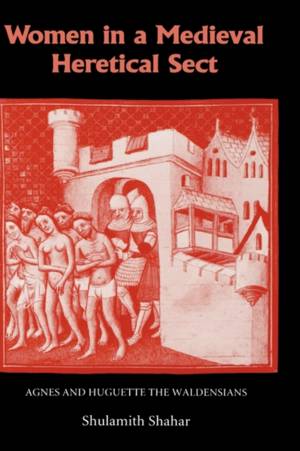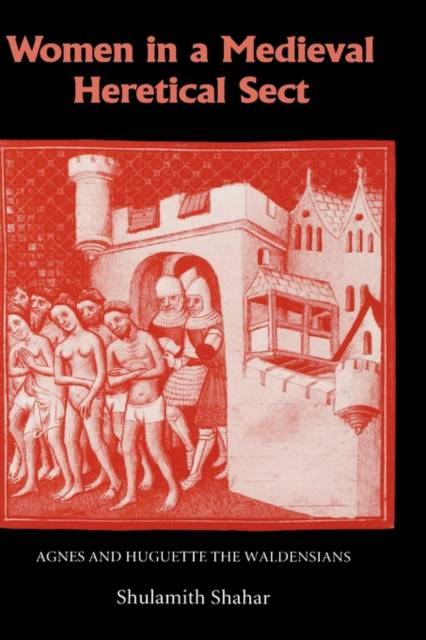
Door een staking bij bpost kan je online bestelling op dit moment iets langer onderweg zijn dan voorzien. Dringend iets nodig? Onze winkels ontvangen jou met open armen!
- Afhalen na 1 uur in een winkel met voorraad
- Gratis thuislevering in België vanaf € 30
- Ruim aanbod met 7 miljoen producten
Door een staking bij bpost kan je online bestelling op dit moment iets langer onderweg zijn dan voorzien. Dringend iets nodig? Onze winkels ontvangen jou met open armen!
- Afhalen na 1 uur in een winkel met voorraad
- Gratis thuislevering in België vanaf € 30
- Ruim aanbod met 7 miljoen producten
Zoeken
Women in a Medieval Heretical Sect
Agnes and Huguette the Waldensians
Shulamith Shahar
Hardcover | Engels
€ 177,45
+ 354 punten
Omschrijving
Women Waldensians have been almost written out of studies of the heretical sect, but are here shown to have played a full role within it, regardless of gender. Agnes and Huguette were two Waldensian women who were interrogated by the inquisitional court of Pamiers, in southern France, in 1319 and subsequently burnt at the stake for their heretical beliefs. Shahar uses the records of their inquisition as a basis for an examination of the Waldensian sect's attitude towards its women members, and their role within the sect, comparing their lives with women in the Catholic church and in other sects. She finds that ina persecuted voluntary group such as the Waldensians, gender was largely immaterial, subordinate to the fervent religious commitment of the members; nor did the court of inquisition distinguish between male and female, subjectingheretics of either sex to the same horrible punishment.
This is the first book-length treatment of women Waldensians, who have been almost written out of studies of the sect, but are here shown to have played a full role within it. It throws light on women and gender in medieval society as well as on one of the main heretical movements in France in the early fourteenth century. SHULAMITH SHAHAR is Professor Emeritus of Medieval History, TelAviv University.
This is the first book-length treatment of women Waldensians, who have been almost written out of studies of the sect, but are here shown to have played a full role within it. It throws light on women and gender in medieval society as well as on one of the main heretical movements in France in the early fourteenth century. SHULAMITH SHAHAR is Professor Emeritus of Medieval History, TelAviv University.
Specificaties
Betrokkenen
- Auteur(s):
- Uitgeverij:
Inhoud
- Aantal bladzijden:
- 204
- Taal:
- Engels
Eigenschappen
- Productcode (EAN):
- 9780851158150
- Verschijningsdatum:
- 3/05/2001
- Uitvoering:
- Hardcover
- Formaat:
- Genaaid
- Afmetingen:
- 160 mm x 243 mm
- Gewicht:
- 498 g

Alleen bij Standaard Boekhandel
+ 354 punten op je klantenkaart van Standaard Boekhandel
Beoordelingen
We publiceren alleen reviews die voldoen aan de voorwaarden voor reviews. Bekijk onze voorwaarden voor reviews.











